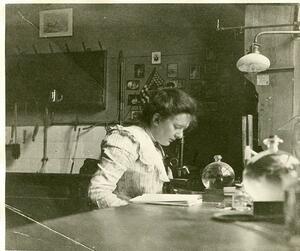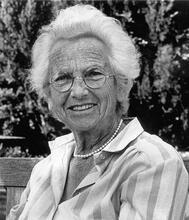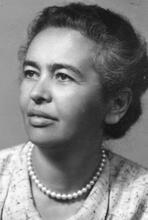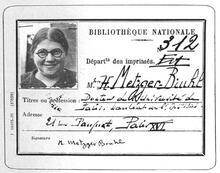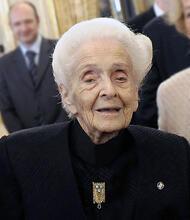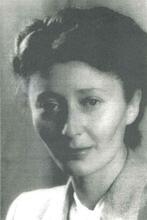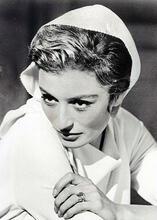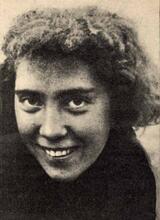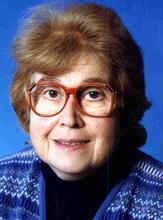Margarete Zuelzer
Margarete Zuelzer persevered against the struggles faced by women wanting to study science around the turn of the twentieth century and earned her doctorate in 1904. Although there were few opportunities for women scientists in Germany, Zuelzer succeeded in finding scientific work, including in a laboratory at the Health Ministry of the Prussian State in Berlin and as a guest scholar in the Kaiser Wilhelm Institute. Zuelzer of the first generation of women scientists in Germany and also one of the first to receive an appointment in a ministry of the Weimar Republic. Forced to flee Nazi Germany for Amsterdam in 1939, Zuelzer was arrested and murdered in 1943.
Article
Margarete Zuelzer’s life epitomizes both the successes and frustrations of women scientists in academia in the first half of the twentieth century. One of the first generation of women scientists in Germany and also one of the first to receive an appointment in a ministry of the Weimar Republic, she was forced to flee from Nazi Germany. Unable to find refuge, she was murdered in 1943.
Margarete (Margarethe Hedwig) Zuelzer was born on February 2, 1877, in the small town of Haynau (Chojnów), near Goldberg, in Silesia. When Zuelzer decided that she wanted to study science, she needed enormous energy and support to do so, since at the time neither girls’ higher education nor women’s colleges existed in Germany. After receiving private tutoring, she took courses as a guest student in science, especially at the universities of Berlin and Heidelberg, requiring the official agreement of every professor whose course she wished to attend. In 1904 she received her doctoral degree in zoology from the University of Heidelberg. Her special interest became the study of protozoa and spirochetes.
Although there were at the time few opportunities for women scientists in Germany, Margarete Zuelzer succeeded in finding scientific work. During World War I she was appointed to a position in a laboratory of the Health Ministry of the Prussian State in Berlin. Here she first became an assistant and later the director of the protozoa laboratory. In the Weimar Republic she was a privy counsellor (Regierungsrat). From 1932 until 1933, Margarete Zuelzer worked as a guest scholar in the Kaiser Wilhelm Institute (KWI) for Physical Chemistry and Electrochemistry (the famous Haber Institute) in Berlin Dahlem.
Dismissed in April 1933, she sought other academic positions, but she was handicapped by her relatively high qualifications and her previous position, as well as her age. She participated in the International Congress of Zoology in Lisbon in 1935, but, unable to find employment outside of Germany, she continued to live in Berlin until October 1939. Only after the terrible pogrom of November 9 and 10, 1938, did she start more energetically to seek escape from Nazi Germany, emigrating to Amsterdam on October 7, 1939. When the Germans occupied the country and the first deportations began, Margarete Zuelzer was arrested by the Gestapo and sent to the transit camp at Westerbork, where she arrived on May 20, 1943. She died in Westerbork on August 23, 1943.
Selected Works
“Zur Hydrobiologie der Weilschen Spirochaeten.” In Comptes Rendus du XIIe Congres Intern. de Zool. Lisbon: 1935, Vol. III, Section X: Parasitologie. 6–A: 1871–1883.
“Zur Kenntnis der Ökologie einiger Saprobien bei Helgoland.” In Die Naturwissenschaften 12 (1924): 113–116.
Bloch, Max., “Gertrud und Margarete Zuelzer: Zwei Schwestern im Holocaust.” Aschkenaz (2014): 195-213.
Boedeker, Elisabeth. (Hrsg.) 25 Jahre Frauenstudium in Deutschland. Verzeichnis der Doktorarbeiten von Frauen 1908–1933. Hannover: 1935ff.
Centrum Judaicum Berlin, information to Annette Vogt, 28. 6. 2001.
Curriculum Vitae, thesis, Heidelberg, 1904.
Herinneringscentrum Kamp Westerbork, letter to Annette Vogt, 21. 8. 2001.
List of Displaced German Scholars. London: 1936.
Vier Hefte; Heft IV, Mathematik, Naturwissenschaften, Technik und Anhang Medizin. Hannover: 1935.
Vogt, Annette. Women Scientists in Kaiser Wilhelm Institutes, from A to Z (Dictionary). Berlin: 1999, 167.

